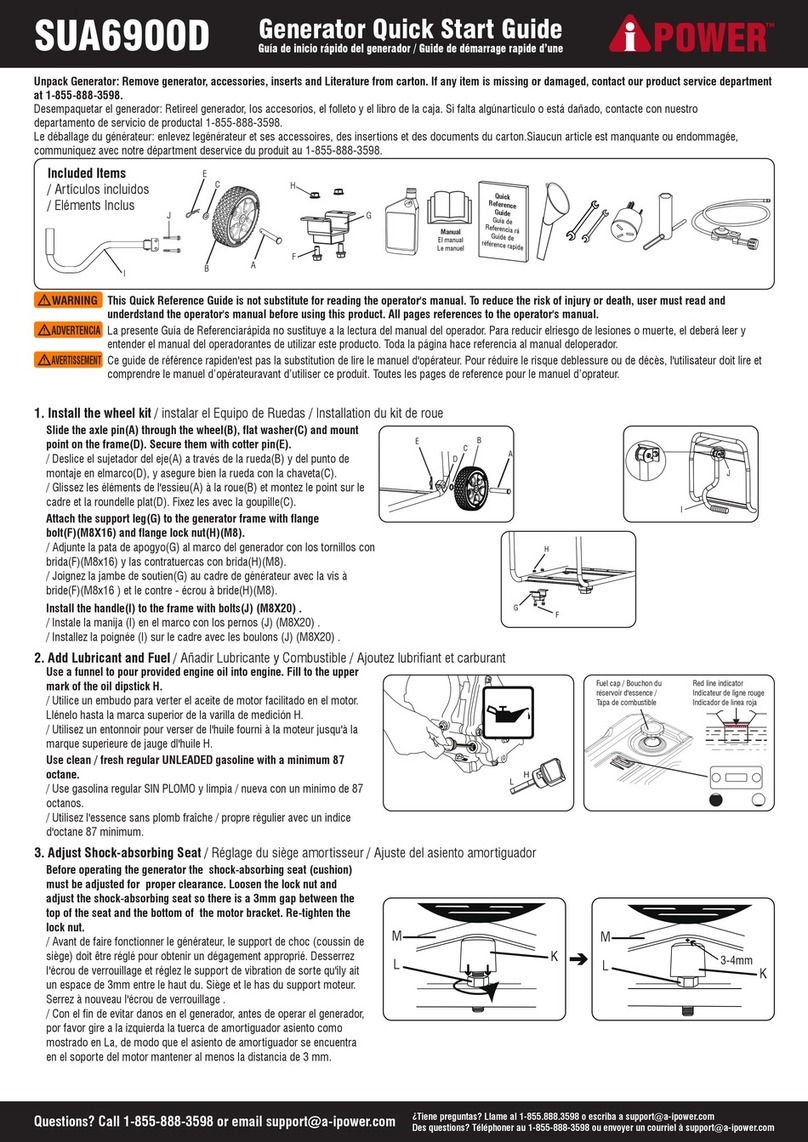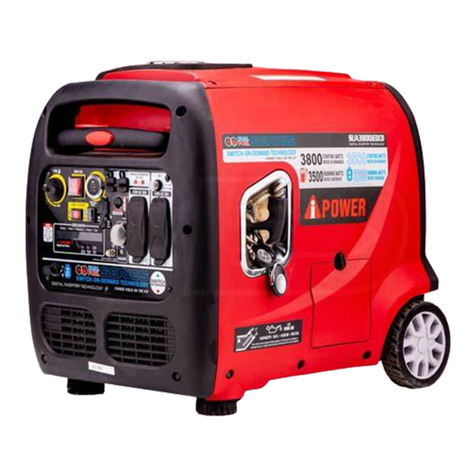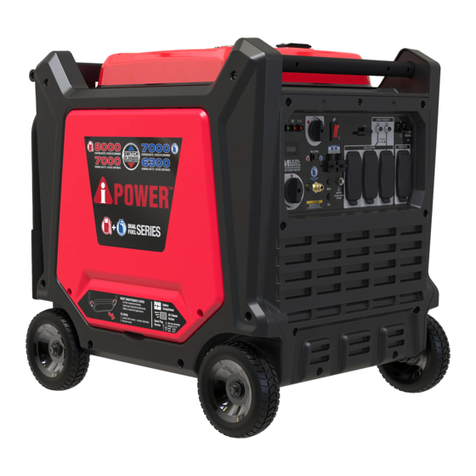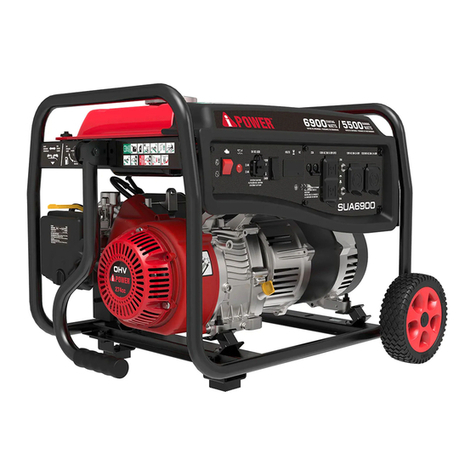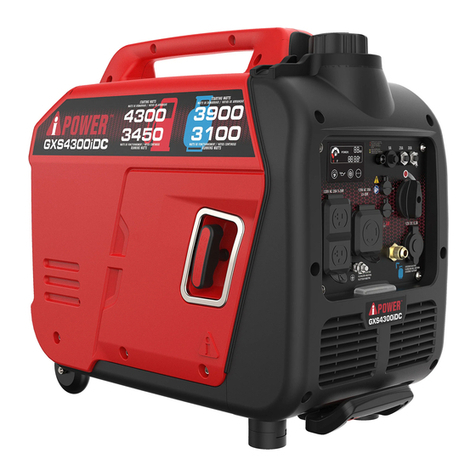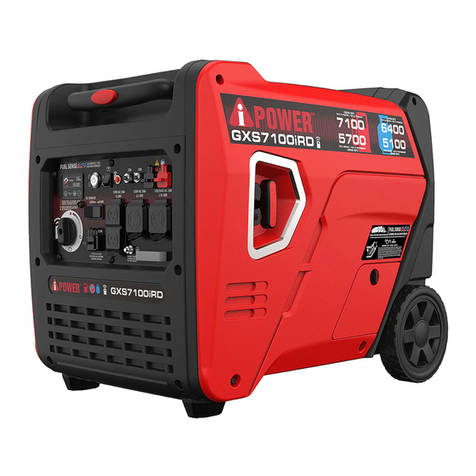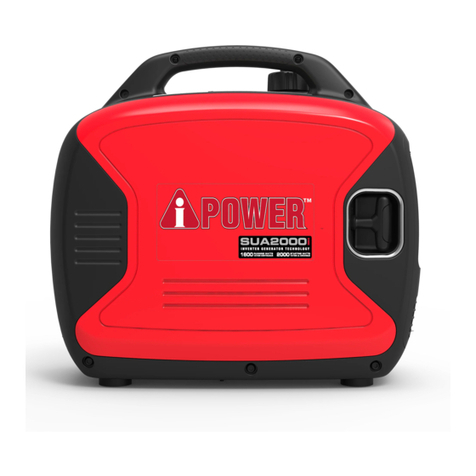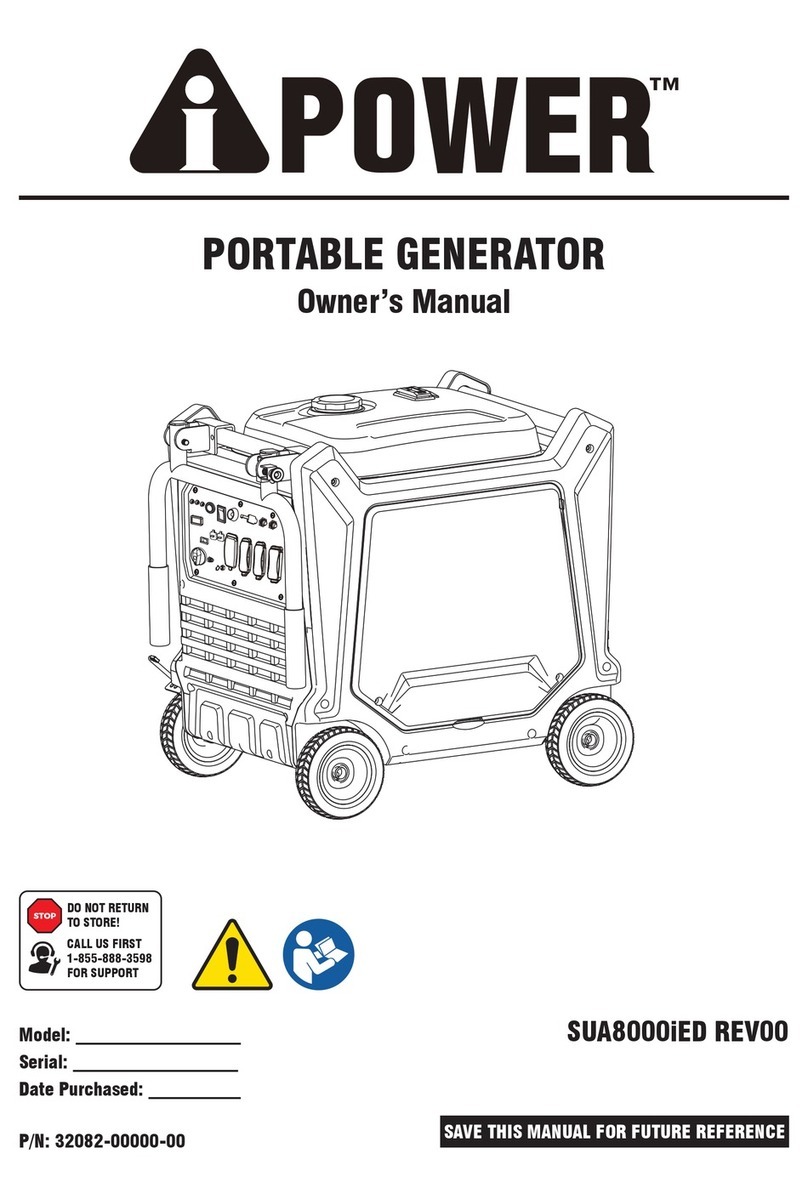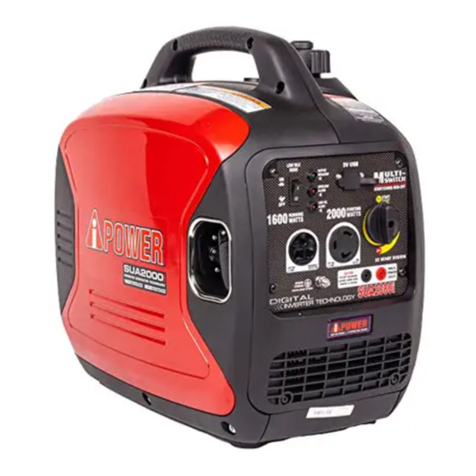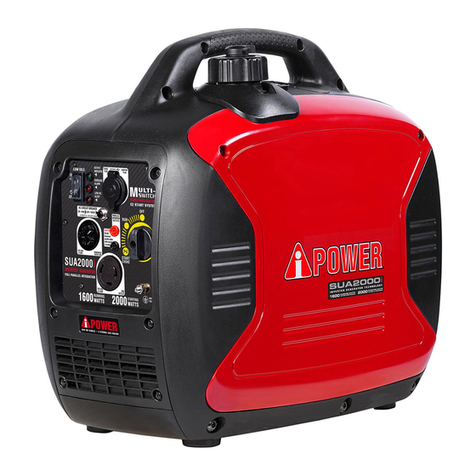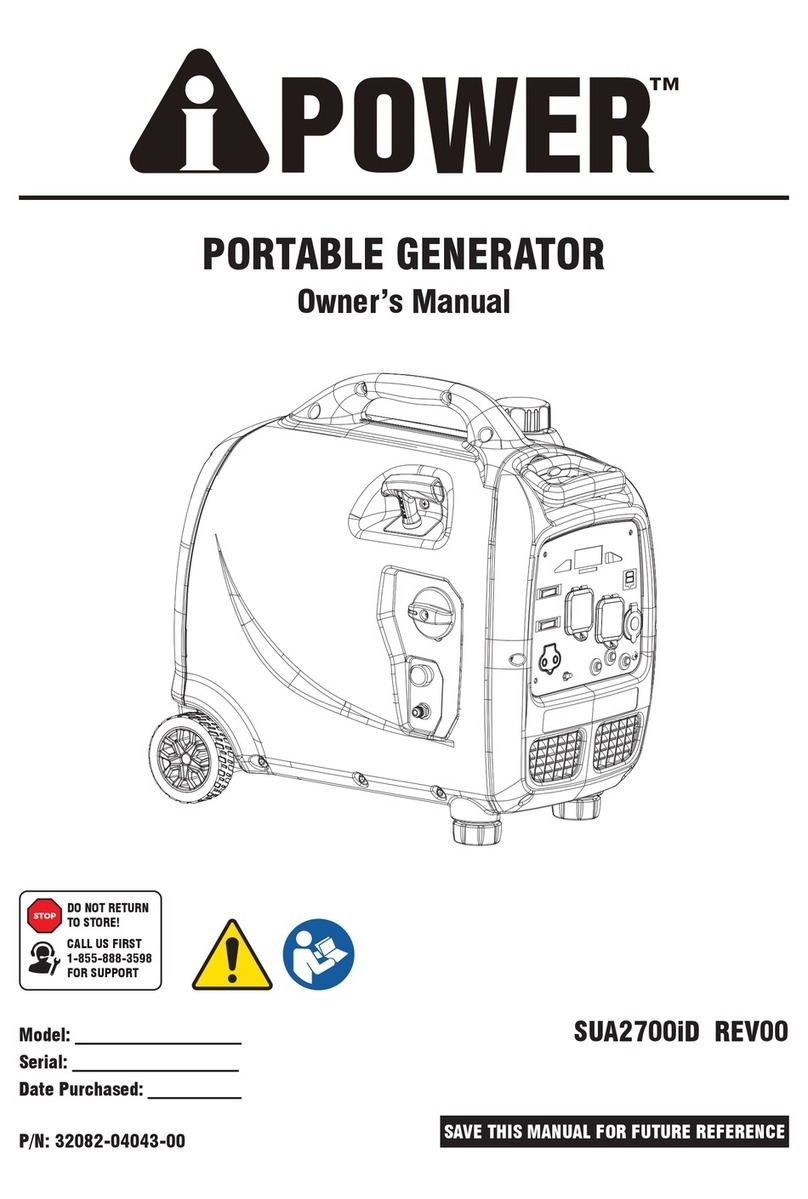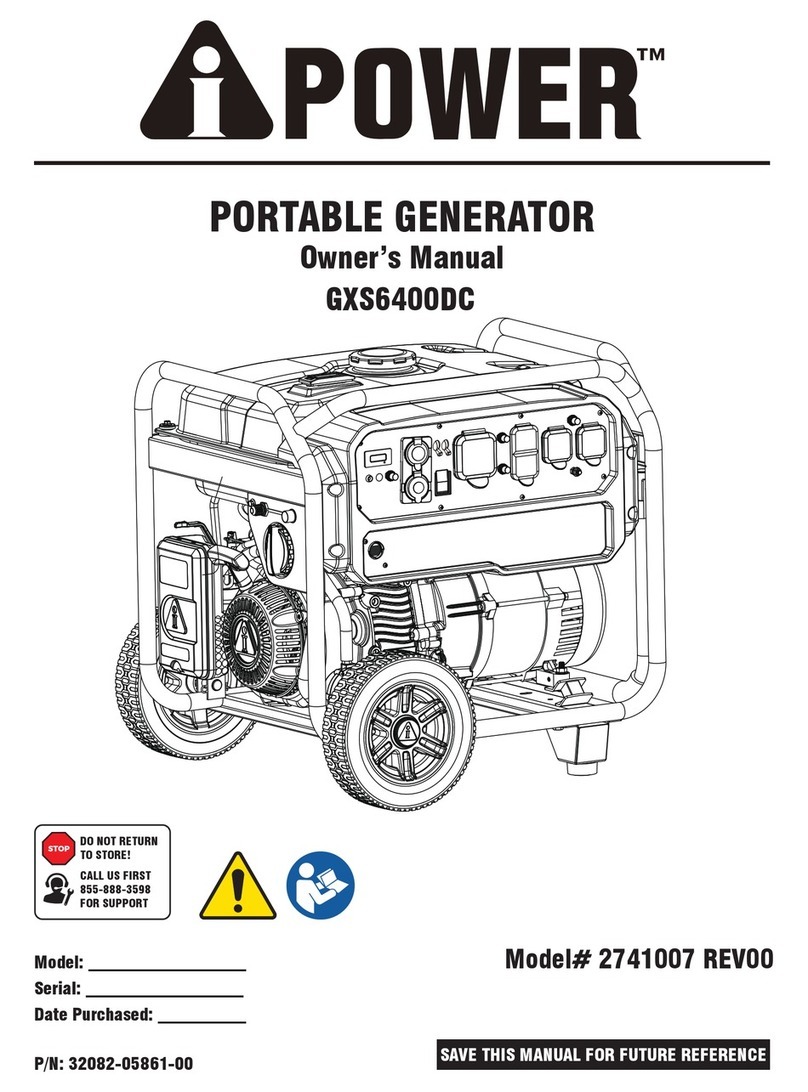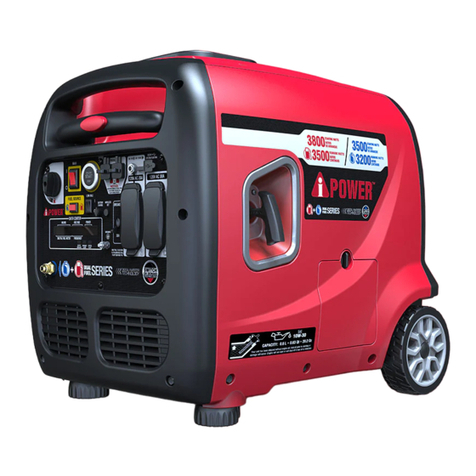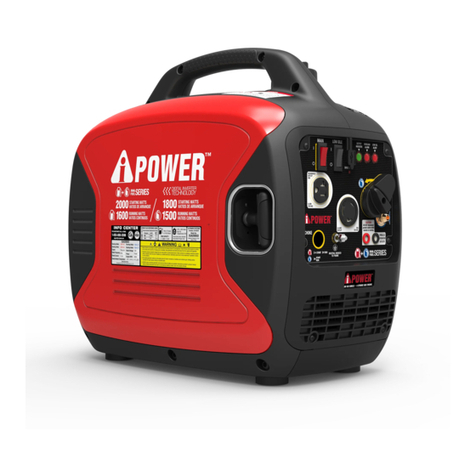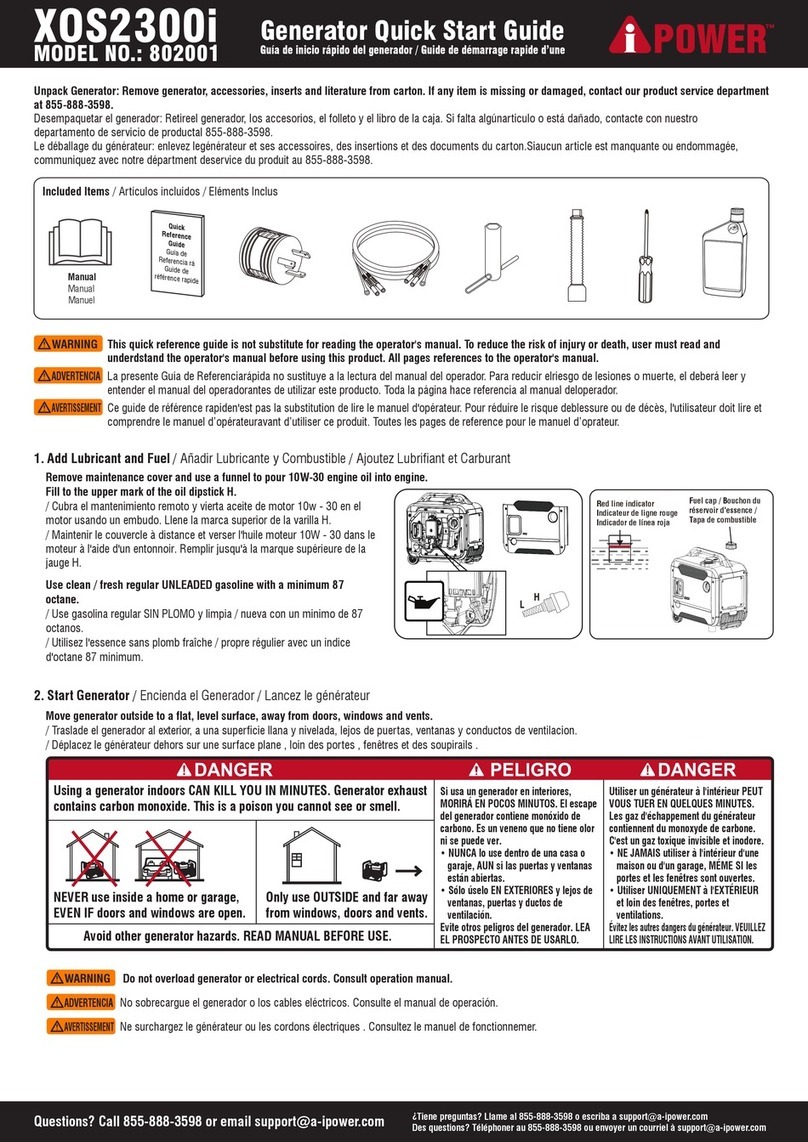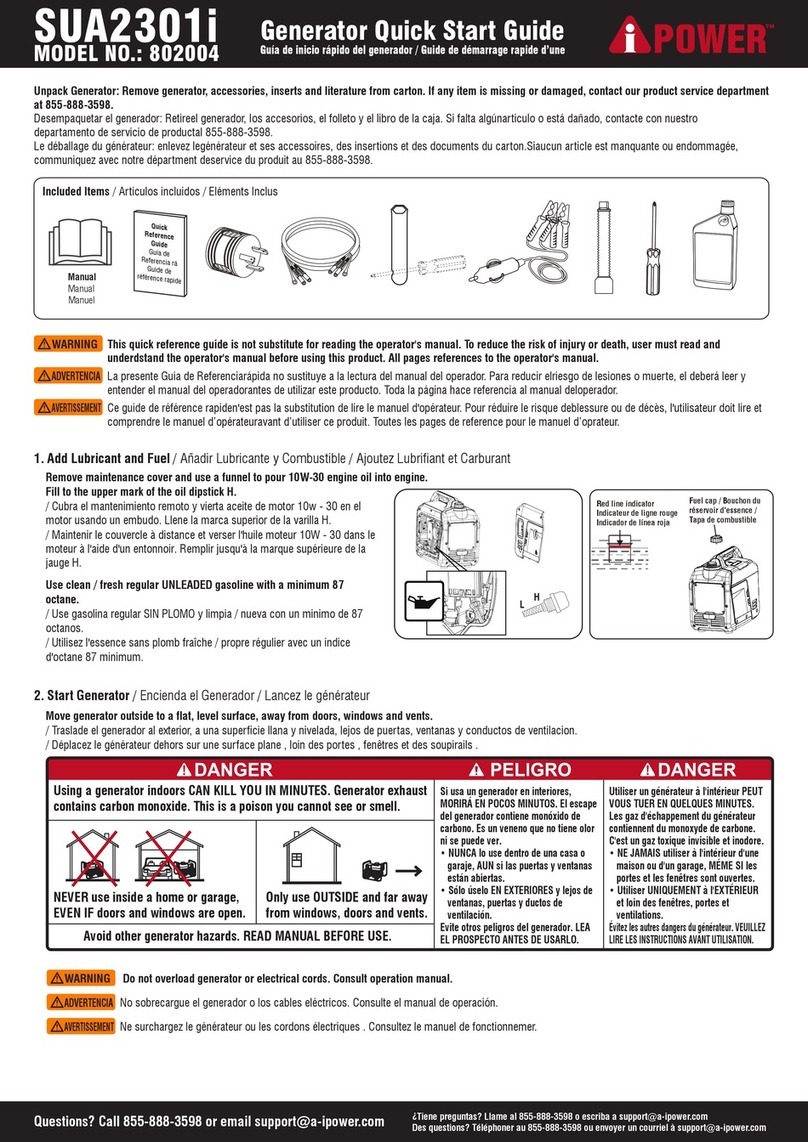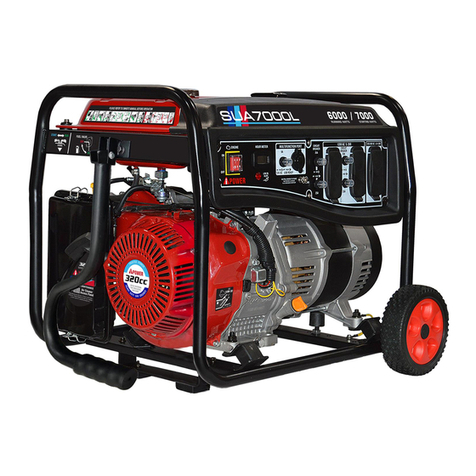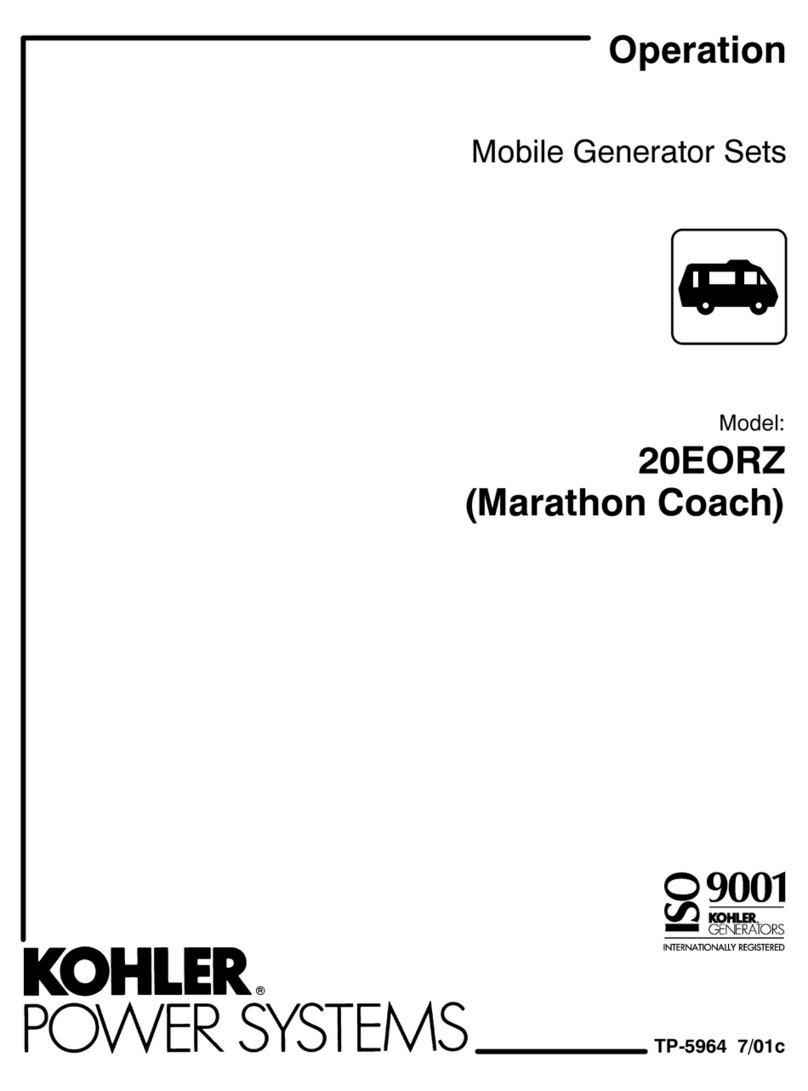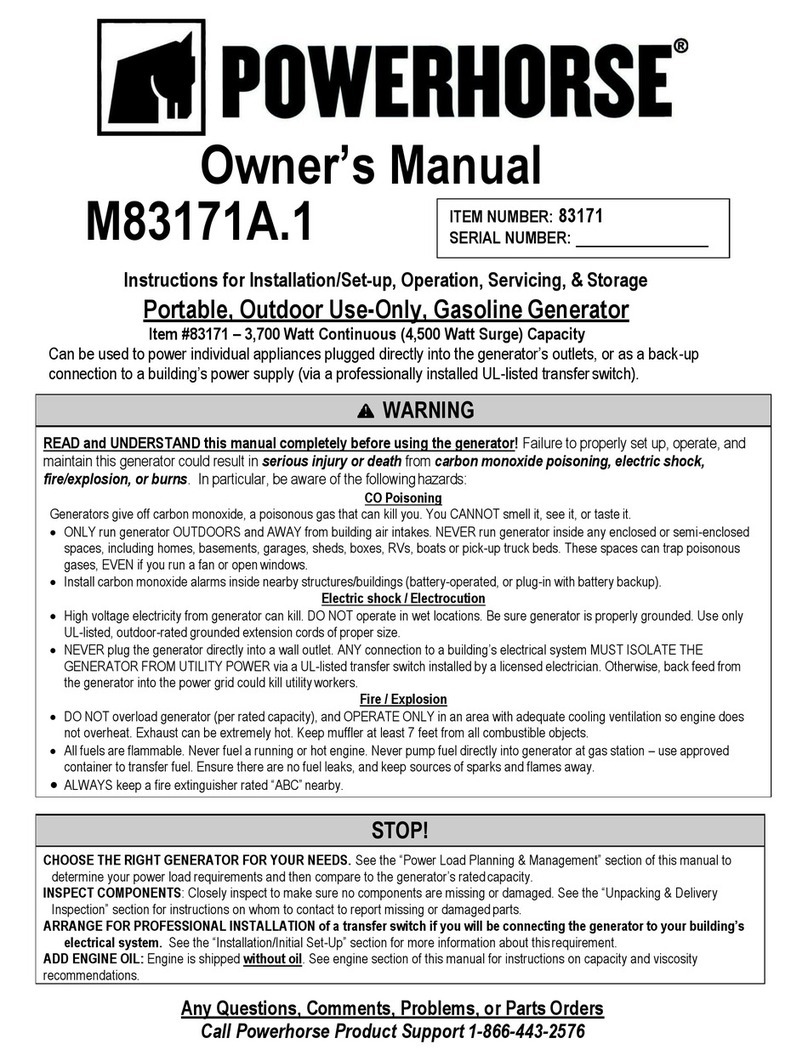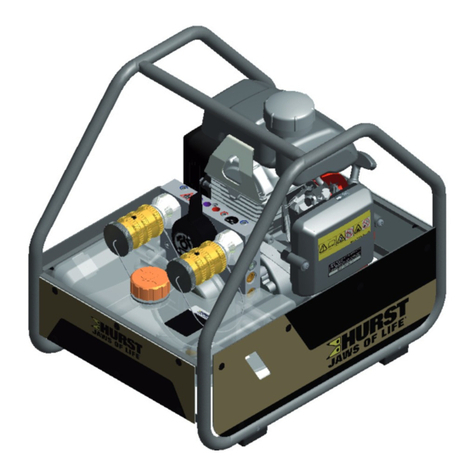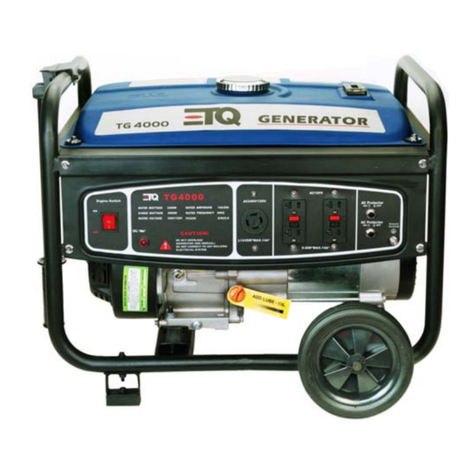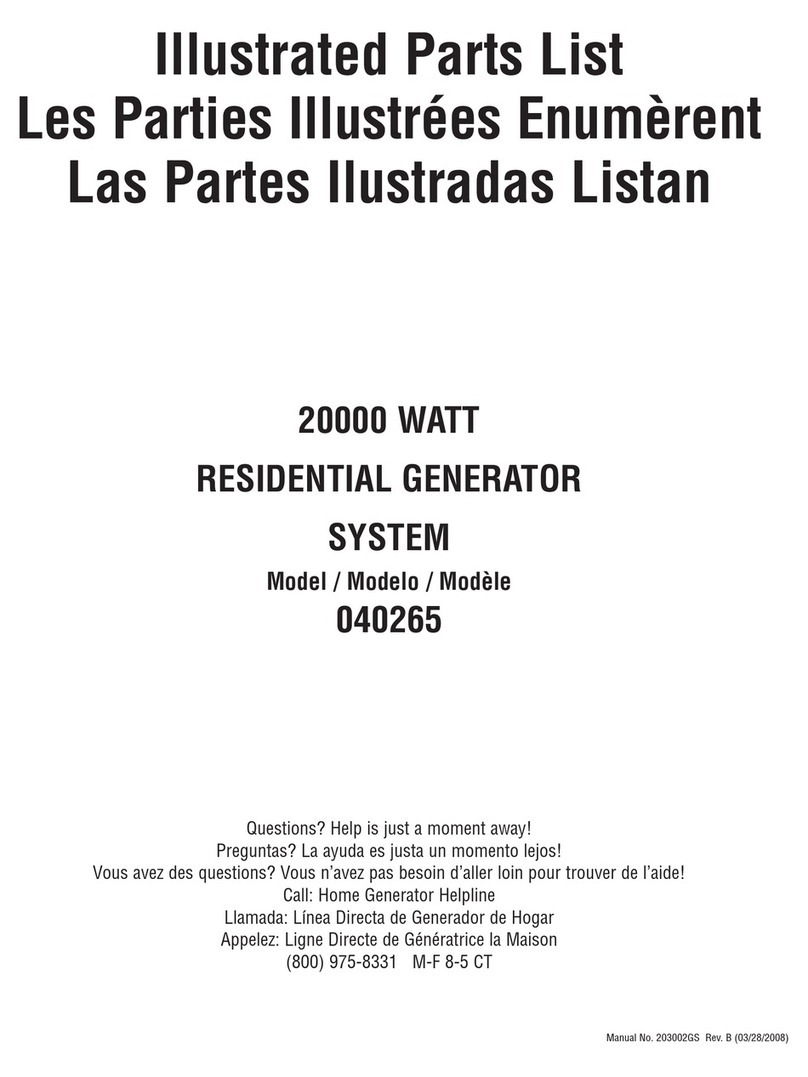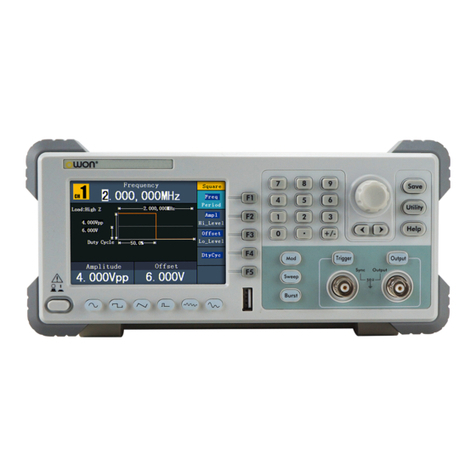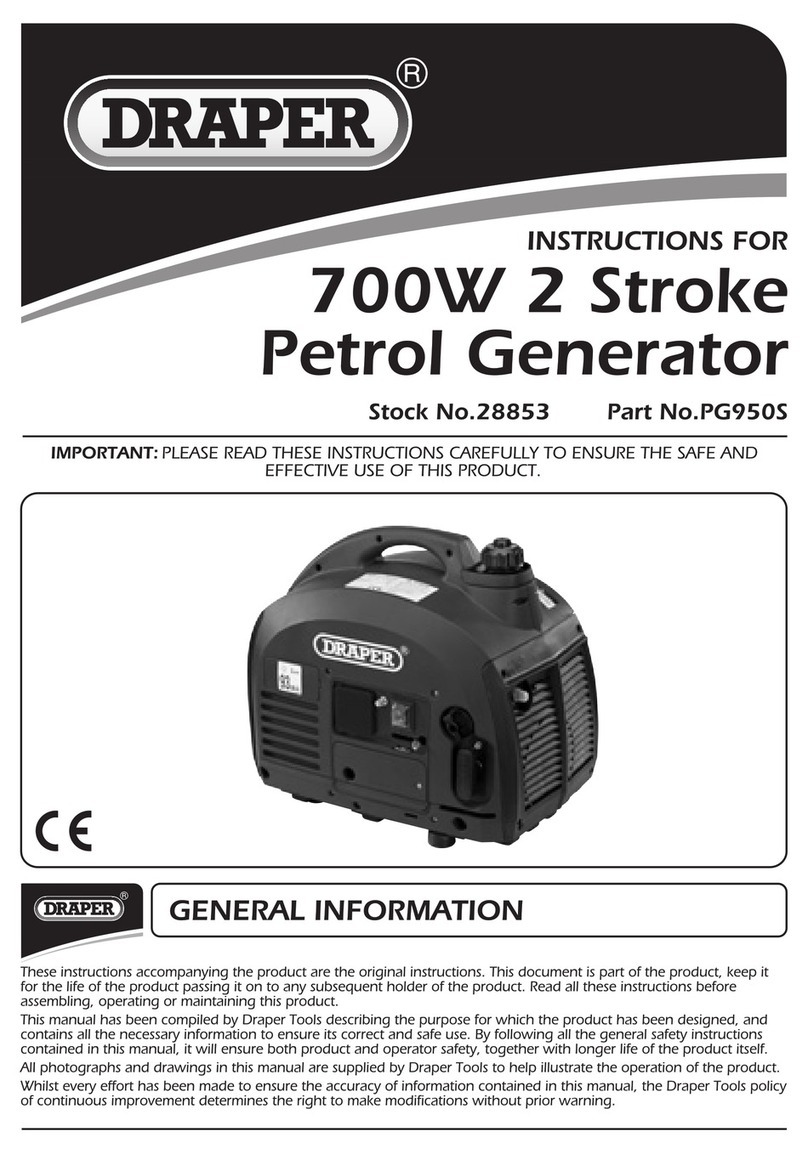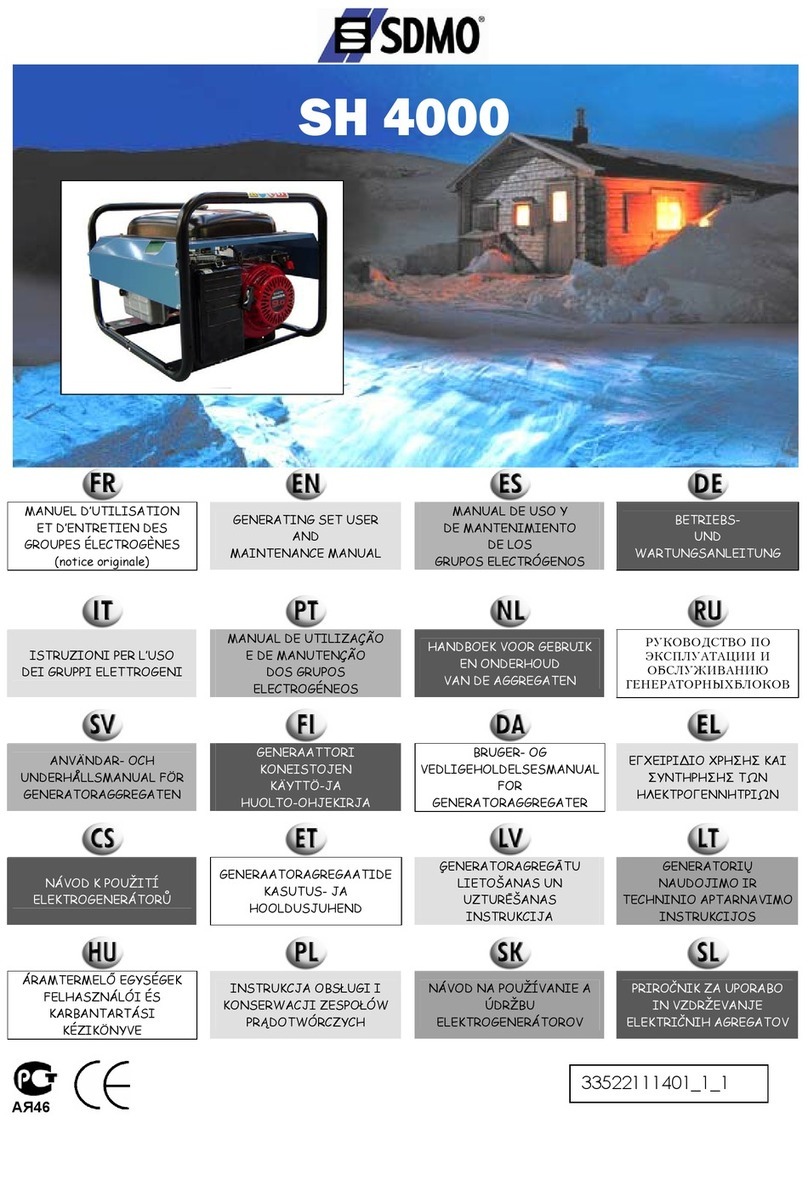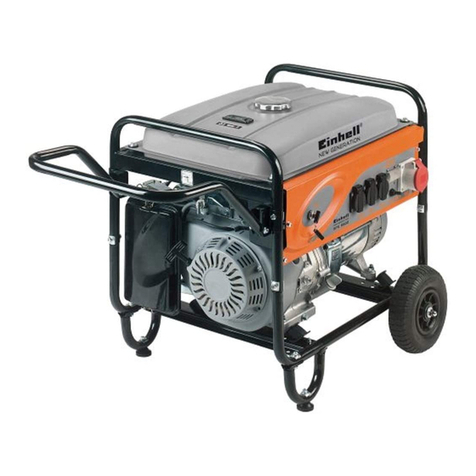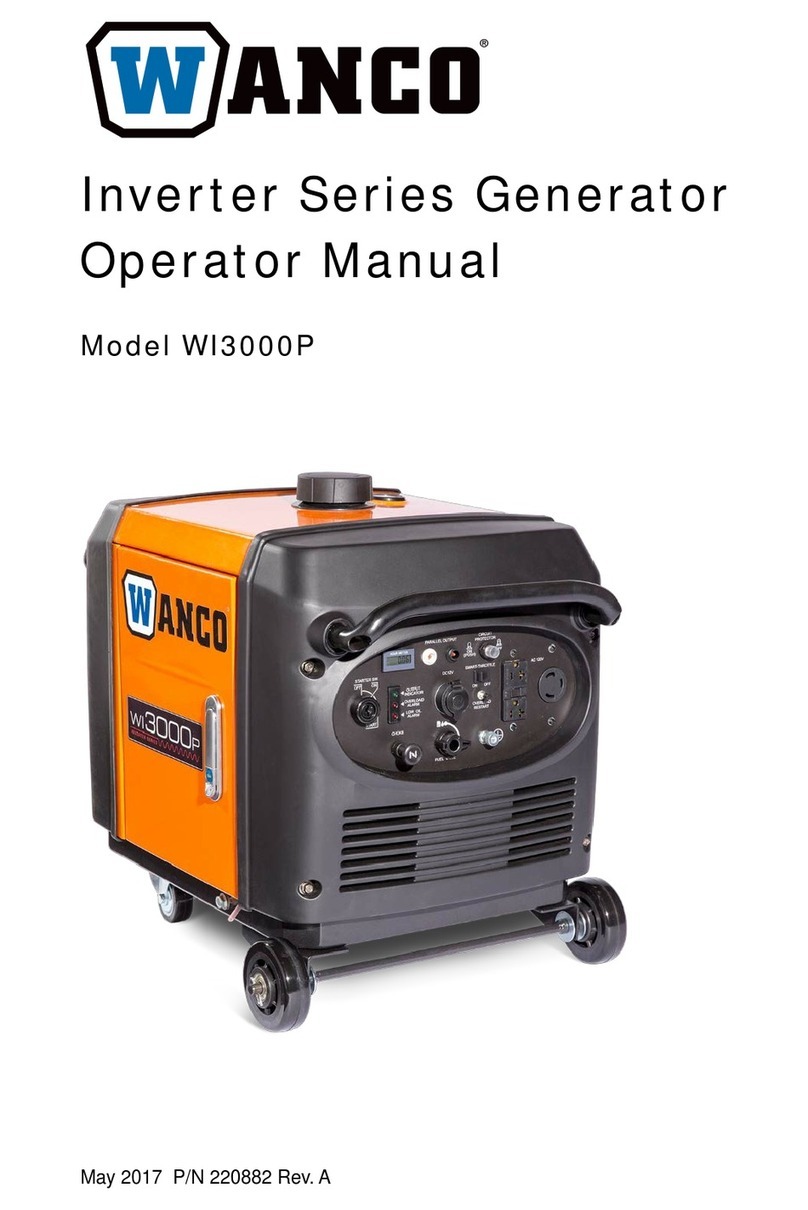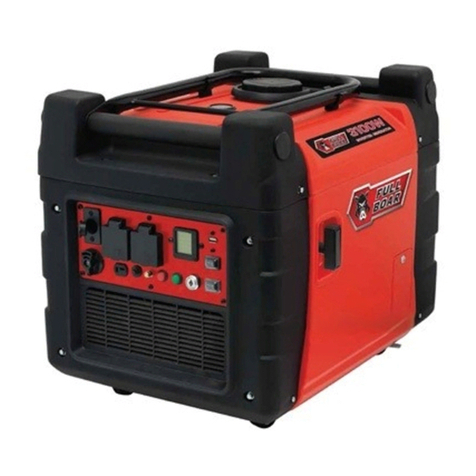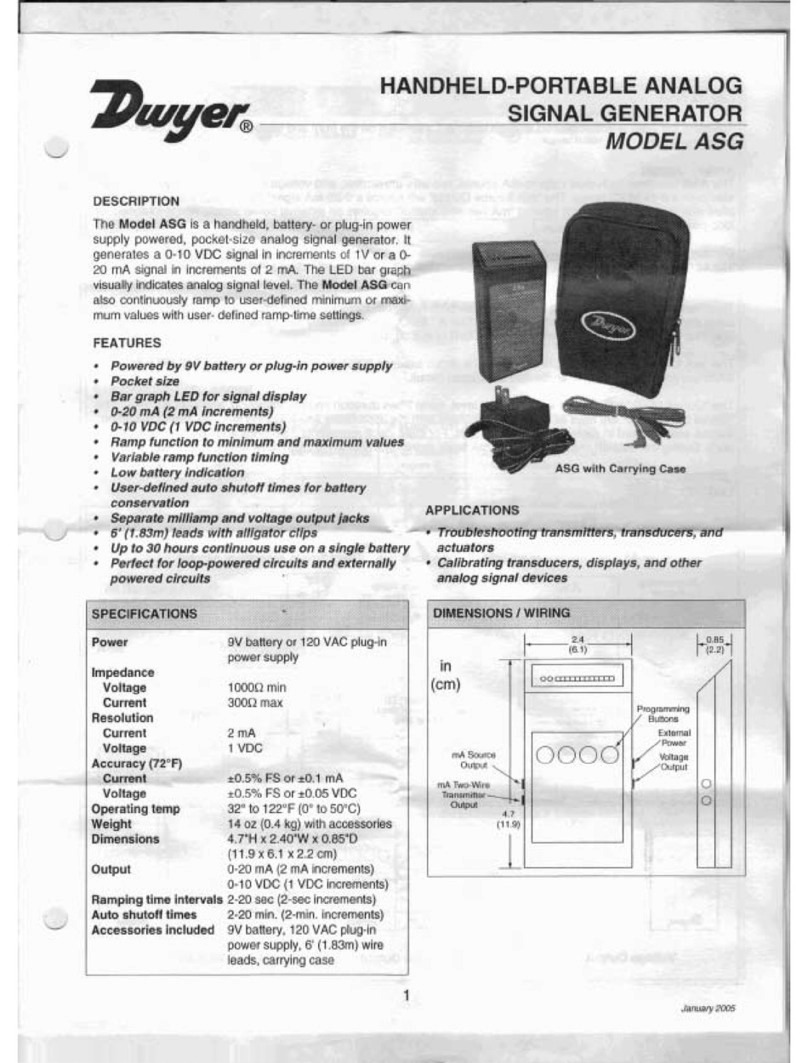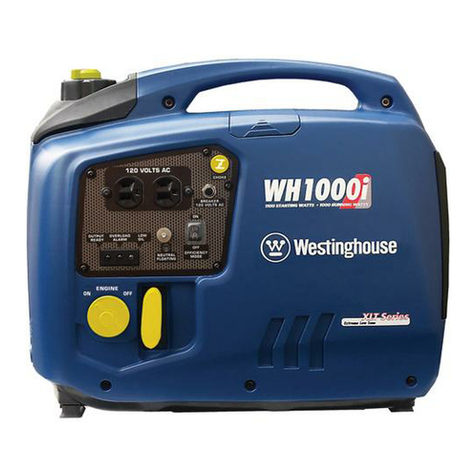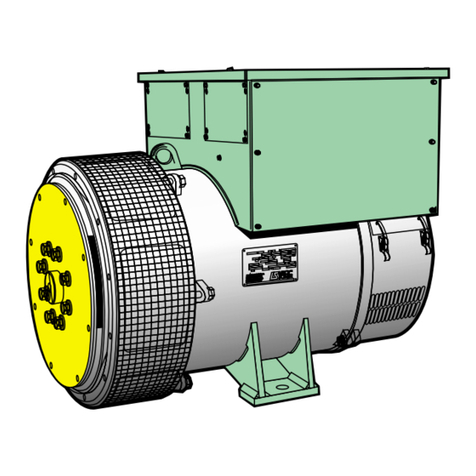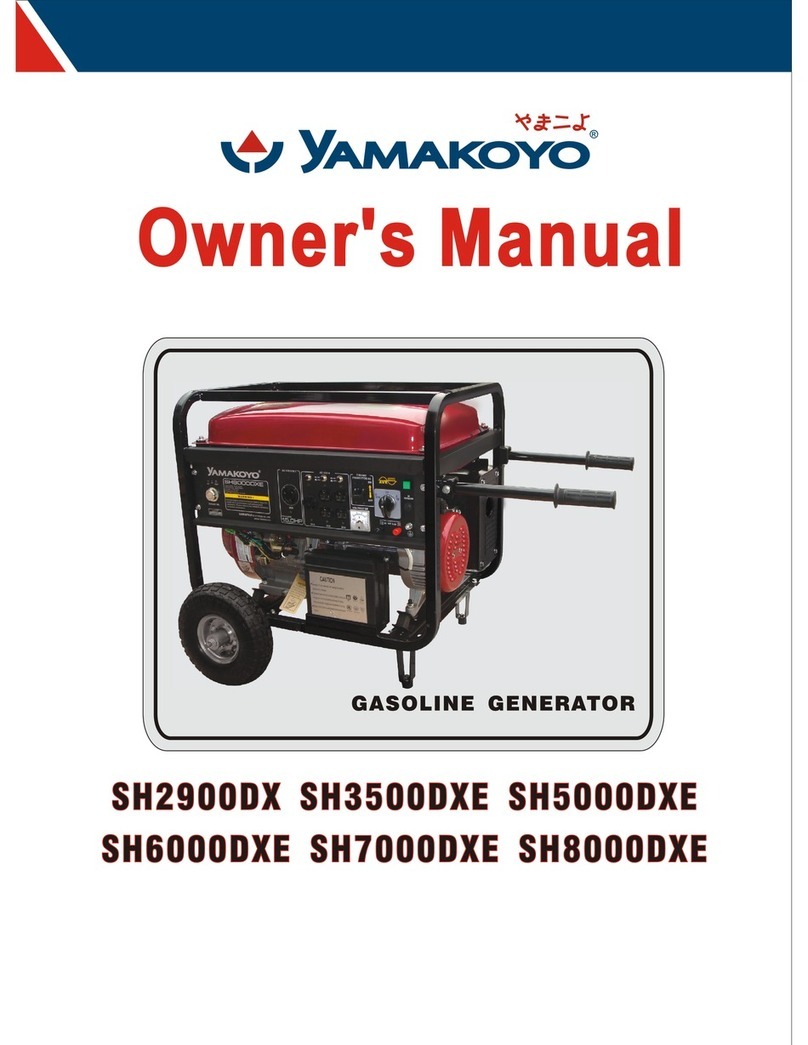Page 04
• When starting engine, pull cord slowly until
resistance is felt and then pull rapidly to avoid
kickback.
• NEVER start or stop engine with electrical devices
plugged in and turned on.
Starter cord kickback (rapid retraction)
will pull hand and arm toward engine
faster than you can let go which could
cause broken bones, fractures, bruises,
or sprains resulting in serious injury.
WARNING
DANGER
Gasoline and gasoline vapors
• Gasoline is a liquid and can cause a fire or
explosion if ignited. Gasoline vapors can ignite as
well.
• Gasoline is a skin irritant and needs to be cleaned
up immediately if spilled on skin or clothes.
• Gasoline has a distinctive odor; this will help detect
potential leaks quickly.
• In case of a petroleum gas fire, do not attempt to
extinguish the flame if the fuel supply valve is in the
ON position. Introducing an extinguisher to a
generator with an open fuel supply valve could
create an explosion hazard.
• Gasoline expands or contracts with ambient
temperatures. Never fill the gasoline tank to full
capacity, as gasoline needs room to expand if
temperatures rise.
Gasoline, gasoline vapor and propane/LPG are highly
flammable and explosive.Fire or explosion can cause
severe burns or death.
DANGER
Do not overfill tank. Allow space for fuel expansion. If
fuel spills wait until it evaporates before starting
engine. Failure to do so will result in death and
serious injury.
Propane/LPG (Liquid Petroleum Gas)
• Propane/LPG is highly flammable and explosive.
• LPG is heavier than air and can settle in low places
while dissipating.
• Propane/LPG has a distinctive odor added to help
detect potential leaks quickly.
• In case of a petroleum gas fire, do not attempt to
extinguish the flame if the fuel supply valve is in the
ON position. Introducing an extinguisher to a
generator with an open fuel supply valve could
create an explosion hazard.
• When exchanging propane/ LPG cylinders, be sure
the cylinder valve is of the same type.
• Always keep the propane/LPG cylinder in an upright
position.
• Propane/LPG will burn skin if it comes in contact
with it. Keep it away from skin at all times.
WHEN ADDING OR DRAINING GASOLINE
• Turn generator engine off and let it cool at least 2
minutes before removing gasoline cap. Loosen cap
slowly to relieve pressure in gasoline tank.
• Only fill or drain gasoline tank outdoors in a
well-ventilated area.
• DO NOT overfill gasoline tank. Allow space for fuel
expansion.
• If gasoline spills, wipe spilled gasoline from the unit
or wait until it evaporates before starting engine.
• Keep fuel away from sparks, open flames, pilot
lights, heat, and other ignition sources.
• Check fuel lines, tank, cap, and fittings frequently
for cracks or leaks. Replace if necessary.
• DO NOT light a cigarette or smoke.
• DO NOT pump gasoline directly into the generator
at the gas station. Use an approved container to
transfer the gasoline to the generator.
WHEN STARTING GENERATOR
• Ensure spark plug, exhaust system, gasoline cap,
fuel lines, propane/LPG regulator and air filter are in
place.
• Wipe spilled gasoline or wait until it evaporates
before starting engine.
• Make certain that the generator is operating firmly
on level ground.
• If you smell gasoline or propane, turn off all fuel
supplies. Make certain, there is no fuel leak before
operating the generator.
Fuel Safety
